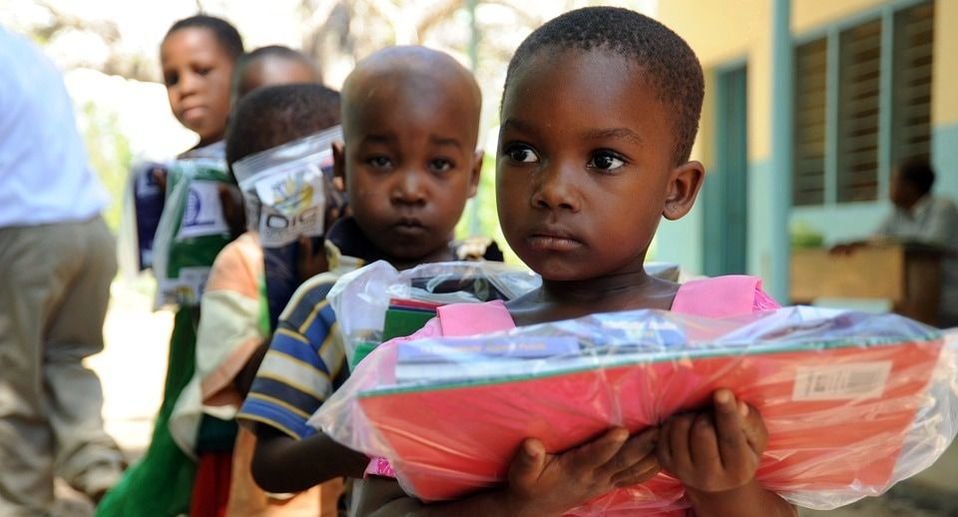Uganda's basic income pilot begins – The village in the swamp
In January 2017, the Belgian organisation Eight began providing a basic income in the village of Busibi, Uganda. They are making a film about the experiment, and the first episode is now available at http://villageone.film/
The film records the people of Busibi talking about their lives and struggles. In Episode 1, residents talk about what they have and what they lack. Besweri explains, “Busibi is a very good island, which is surrounded by a swamp. People produce their own food, they have animals, they have houses but they are only mud-and-water houses, not permanent ones. There is no electricity and no improved water system – they are using hand-dug wells. They are poor, yes, but they are not the poorest among the poor.”
Eflazio highlights the ways in which people's hard work doesn't always translate into income: “People have engaged themselves in hard work but then we don't have roads. If the roads are improved, we can get to the markets to sell our goods.” Bright points out that people can't can't get enough of what they need from shrinking communal spaces either, noting that scarcity of firewood is a big problem for local people.
William traces the root of their problems to the community's political invisibility: “We are not doing well in Busibi. We don't have water, a school, or even the smallest of hospitals. We don't have money for basic needs. The problem in Busibi is the government does not recognise us. We are not getting any kind of support from the government.”
Power relationships closer to home have an impact too. Eddie points out, “The owner of that big farm decided to drain the swamp so his animals could graze. The consequences are very bad and will affect the people of Busibi. Eventually they will have scarcity of water because he is draining it and that is the source of water for these people.”
Many of the issues raised by the Busibi residents are collective – they lack public services, infrastructure, adequate collective resources and political recognition. It will be interesting to see whether basic income, as a direct transfer to individuals, can help with these problems. Will people pool some of their resources to build safer wells or plant firewood trees? Will the cash help people to invest in bus fares or pack animals to help get their goods to market despite the poor roads? Will the money give people the security and resources they need in order to fight for their rights with local landowners and the government?
Eight see cash as a grassroots means for people to solve problems their own way. They write, “Poverty starts with a money problem, with an unequal distribution of money. It doesn’t start with a lack of education, lack of health, lack of enterprises, it starts with a lack of money. Giving money directly to the poor will get them empowered to send children to school, to get access to health care, to start local enterprises, to connect with others and express opinions and interests in collective action.”
The Busibi basic income experiment will provide crucial further evidence as to the impacts of basic income, and the film provides a unique opportunity for the people receiving basic income to tell the story for themselves. Episodes 2 to 12 will be released weekly from April to June this year. Find out more at http://www.eight.world/



